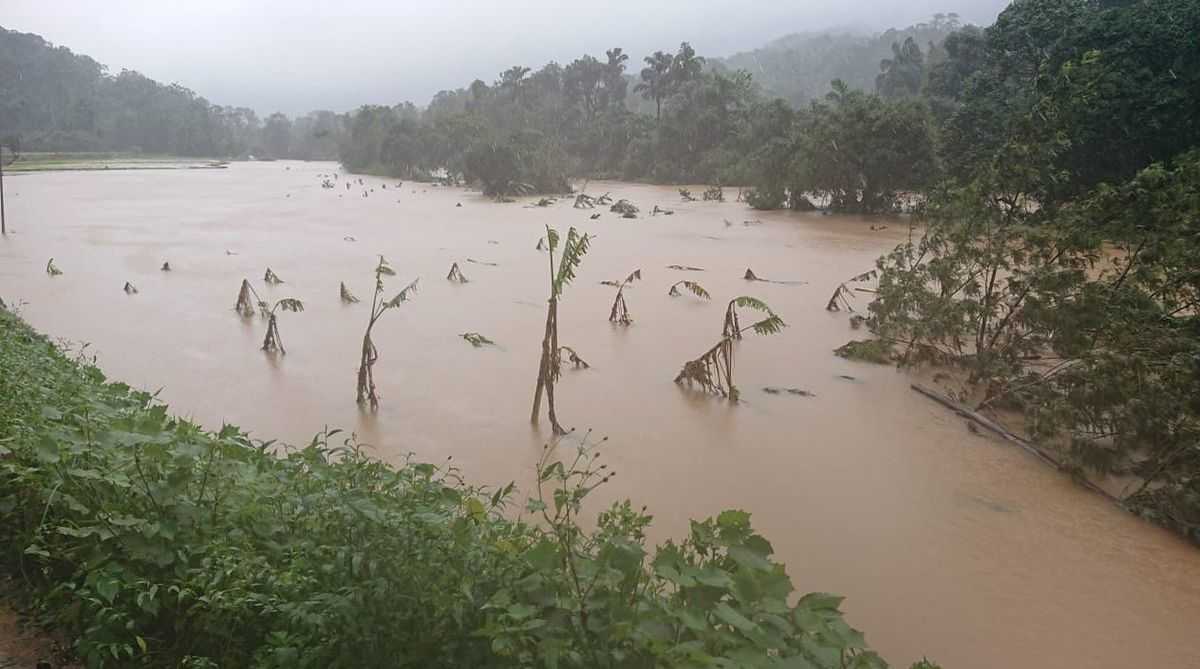MUMBAI, India – In its latest report, Usda Foreign Agricultural Service forecasts India ’s MY 2018/19 coffee crop (October-September) at 5.2 million 60-kg bags, as heavy monsoon rains significantly affected the crop in coffee growing regions of Karnataka and Kerala.
FAS Mumbai forecasts lower exports at 5.4 million 60-kg bags due to lower expected production and smaller carryover stocks after strong MY 2017/18 numbers. The limited supply is expected to drive domestic farm-gate bean prices higher once the harvest begins in December.
FAS Mumbai estimates 300,000 60-kg bags lower than the official USDA estimate of 5.5 million 60-kg bags for MY 2018/19. Post estimates Arabica production at 1.5 million 60-kg bags and Robusta production at 3.7 million 60-kg bags. The Karnataka state contributes 70 percent of coffee production in the country, followed by the Kerala state at 20 percent. India is primarily a producer of the Robusta variety with 70 percent of total production; Karnataka is the leading producer of the Robusta variety with almost 49 percent of total production.
The expected reduction in the MY 2018/19 crop is based on the impact of heavy monsoon rains received in the two major coffee growing states of Karnataka and Kerala. The heavy rains led to berry droppings, which will affect the overall yields, especially the Robusta variety. There have been less incidences of plant mortality reported due to excessive rains, but there are concerns regarding emergence of fungal diseases, which may also affect yields. Trade sources indicate rains in August caused significant damage not only to the coffee crop, but also to other crops such as pepper, and areca nut, which have increasingly become a strong source of income for farmers. Trade associations indicate the crop losses to be around 20 percent higher than the Coffee Board of India (the Board) estimates. Post estimates MY 2018/19 yields for Arabica variety at 455 kg per hectare, and Robusta variety at 991 kg per hectare.
For MY 2017/18, the Board revised its production estimates at 5.27 million 60-kg bags (316,000 MT comprising 95,000 MT of Arabica and 221,000 MT of Robusta) in its final forecast. Post revised the MY 2017/18 production estimate to reflect the Board’s final estimate.
According to the India Meteorological Department, during the Southwest Monsoon (June–September), the coffee growing district in Chikmagalur (Karnataka state) received 13 percent above normal (50-year average) rainfall. During the same time, the Kodagu district of Karnataka received 59 percent above normal; the Hassan district of Karnataka received 27 percent above normal. Other major coffee growing regions in Kerala state received above normal rainfall, with heavy rains in early August and spread out through September.
Consumption:
The MY 2018/19 consumption forecast is 1.25 million 60-kg bags (75,000 MT). Industry estimates indicate coffee consumption remained between 1.16 million 60-kg bags and 1.25 million 60-kg bags (70,000–75,000 MT). The Board has not published any consumption data since 2011. FAS Mumbai consumption estimates are based on industry analysis and discussions with industry stakeholders.
Trade:
FAS Mumbai estimates exports at 5.4 million 60-kg bags as exporters continue to draw down stocks. The Indian currency has weakened by ten percent since October 2017, prompting strong export orders. However, the uncertainty around the currency and anticipated low carryover stocks for next year may prompt lower exports in 2019 than in 2018. Italy, Germany, and Belgium remain the top export markets for coffee beans while Russia is a top export market for instant, soluble coffee.
Since April 2018, green coffee prices for Arabica Parchment and Robusta Cherry in Karnataka state rose by 9 percent and 19 percent, respectively. While Robusta Cherry prices remain higher than last year’s average prices, Arabica Plantation prices remain well below the average prices in 2017. Indian prices have tracked with global prices for both varietals.
FAS Mumbai estimates MY 2018/19 imports at 1.3 million 60-kg bags. Imports of green coffee are expected to remain stable, as most of the coffee is processed for re-exports due to duty exemptions and lower overall prices. In MY 2017/18, imports of green coffee to India were dominated by Vietnam, Uganda, and Kenya.




















